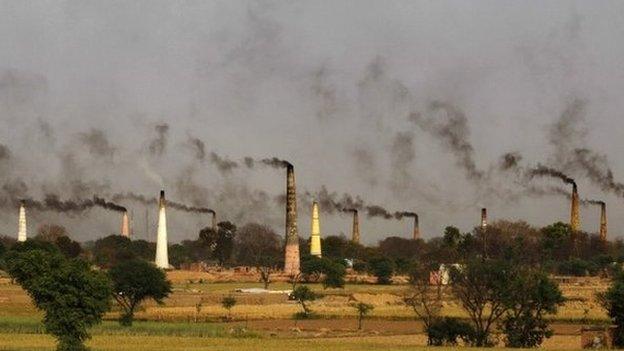Delhi pollution: City to allow vehicles based on number plates
- Published
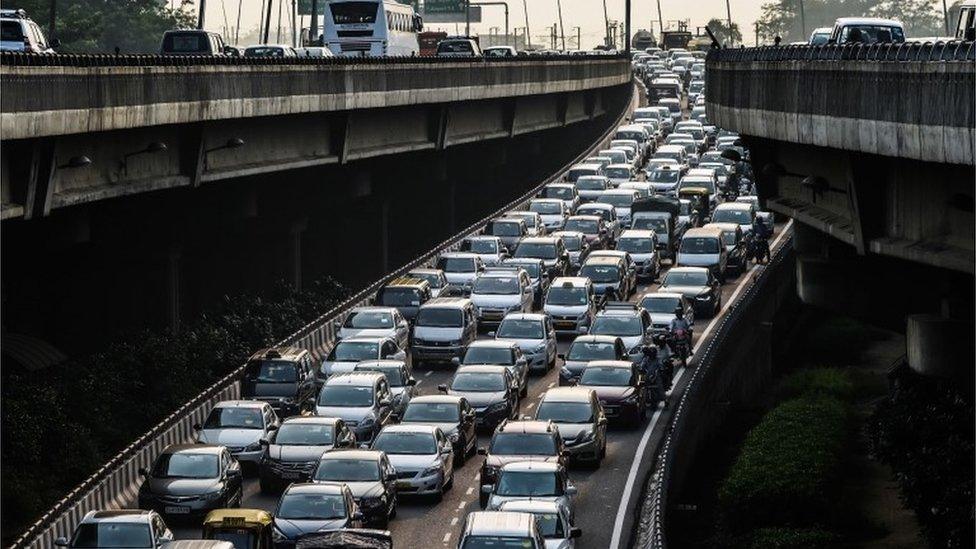
The local government in the Indian capital has said that private vehicles with odd and even registration numbers will only be allowed to operate on alternate days to curb pollution.
The scheme will be implemented from 1 January, officials said.
Earlier, officials said they would ban trucks and buses over 15 years old.
Delhi is experiencing hazardous levels of pollution due to diesel emissions, construction dirt and the burning of crop stubble in farms around the city.
Air pollution causes more than 600,000 premature deaths in India each year.
In recent days, pollution levels in Delhi have reached alarming levels and on Thursday, the Delhi high court said , externalthe city resembled a "gas chamber".
On Friday, a government official said that from 1 January 2016, vehicles with number plates ending with an odd number would be allowed one day while only those ending with an even number would be allowed the next day.
The transport department would run extra buses, he added.
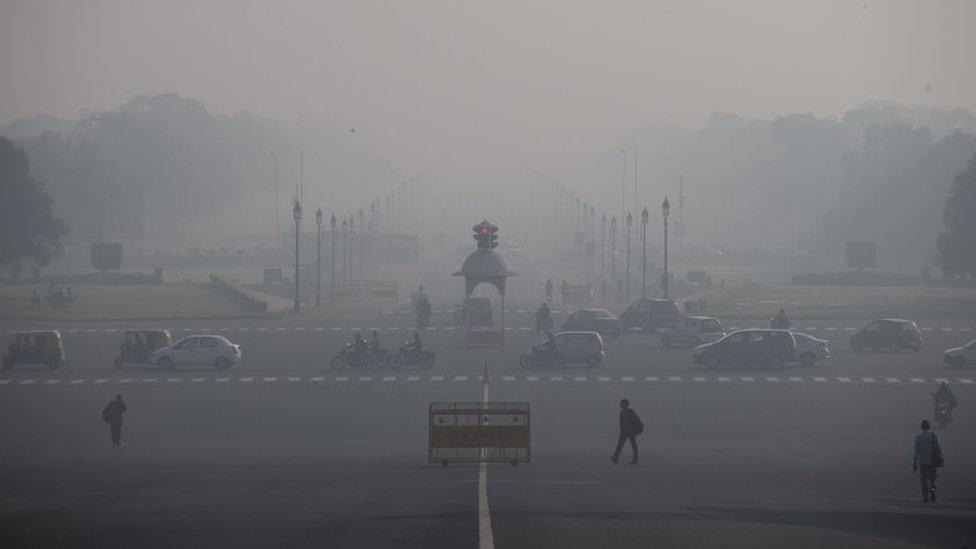
The Delhi high court has said the city resembles a "gas chamber"
Critics, however, say the decision is not practical, adding that in a city with an inadequate public transport system and poor last-mile connectivity, the new measures are likely to inconvenience commuters.
Environmental activists, however, have welcomed the decision - saying the situation is so grim that urgent drastic steps are needed.
New car sales are soaring in India, with 1,400 extra cars taking to the capital's streets every day.
Last week India said it would require vehicles to abide by stricter emissions standards by 2019, three years ahead of a previous deadline.
Earlier this month, on the night of Diwali, the Hindu festival of lights, air pollution in Delhi reached 40 times the limit recommended by the WHO.
The capital city is not alone - India has 13 of the world's 20 most polluted cities, the World Health Organization (WHO) reported last year.
- Published12 November 2015
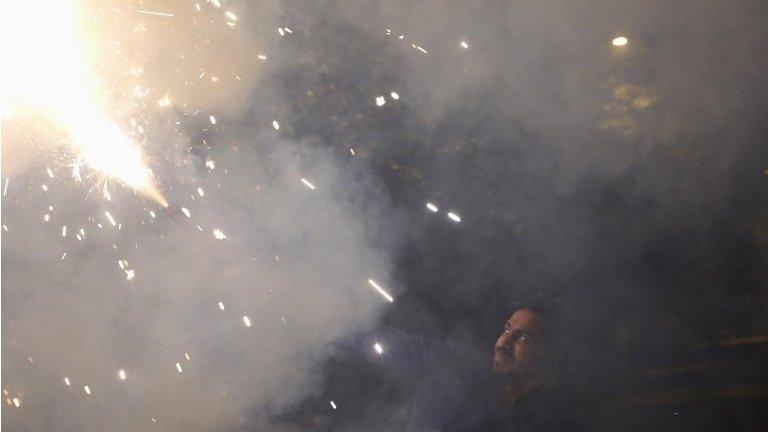
- Published19 April 2015
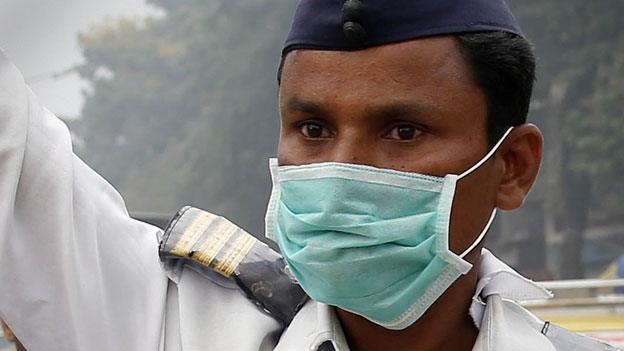
- Published6 April 2015
